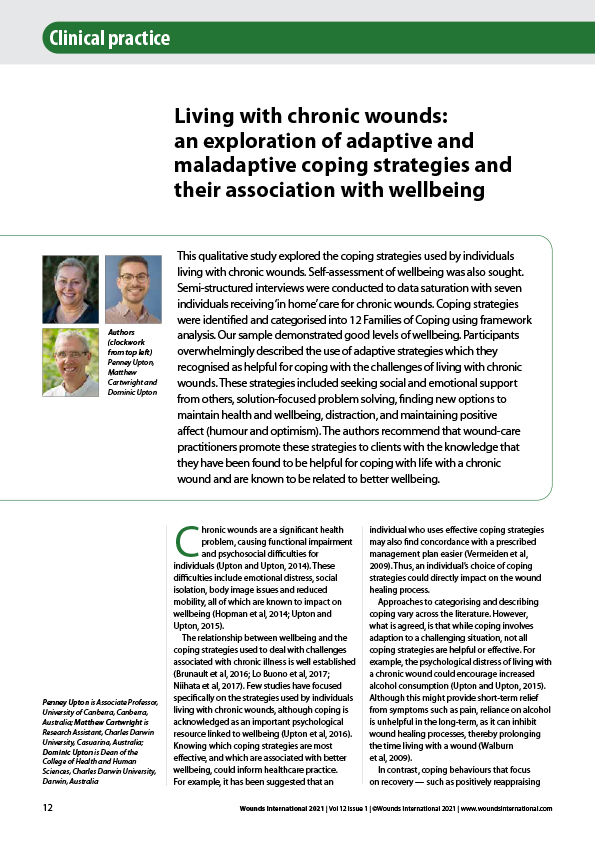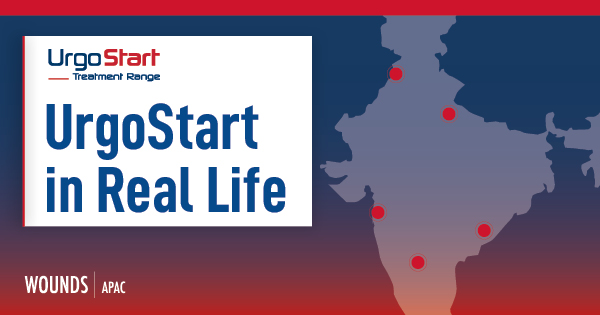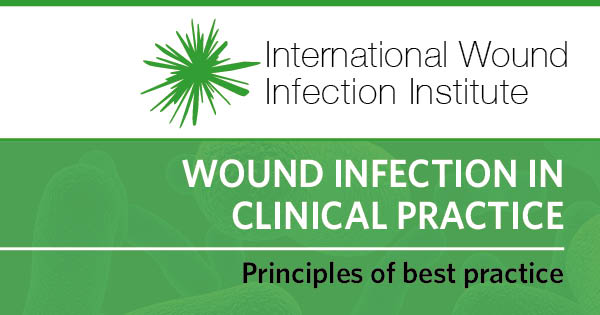This qualitative study explored the coping strategies used by individuals living with chronic wounds. Self-assessment of wellbeing was also sought. Semi-structured interviews were conducted to data saturation with seven individuals receiving ‘in home’ care for chronic wounds. Coping strategies were identified and categorised into 12 Families of Coping using framework analysis. Our sample demonstrated good levels of wellbeing. Participants overwhelmingly described the use of adaptive strategies which they recognised as helpful for coping with the challenges of living with chronic wounds. These strategies included seeking social and emotional support from others, solution-focused problem solving, finding new options to maintain health and wellbeing, distraction, and maintaining positive affect (humour and optimism). The authors recommend that wound-care practitioners promote these strategies to clients with the knowledge that they have been found to be helpful for coping with life with a chronic wound and are known to be related to better wellbeing.





